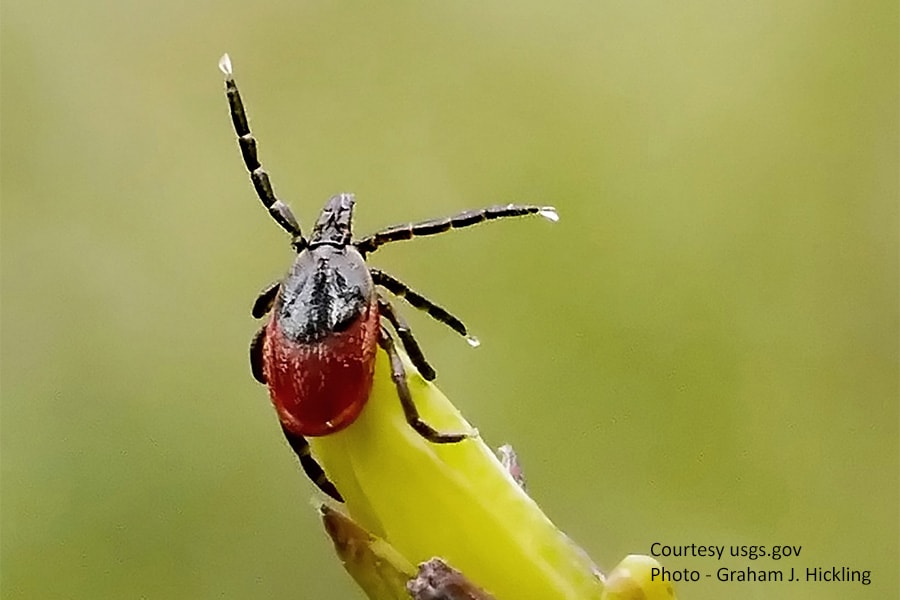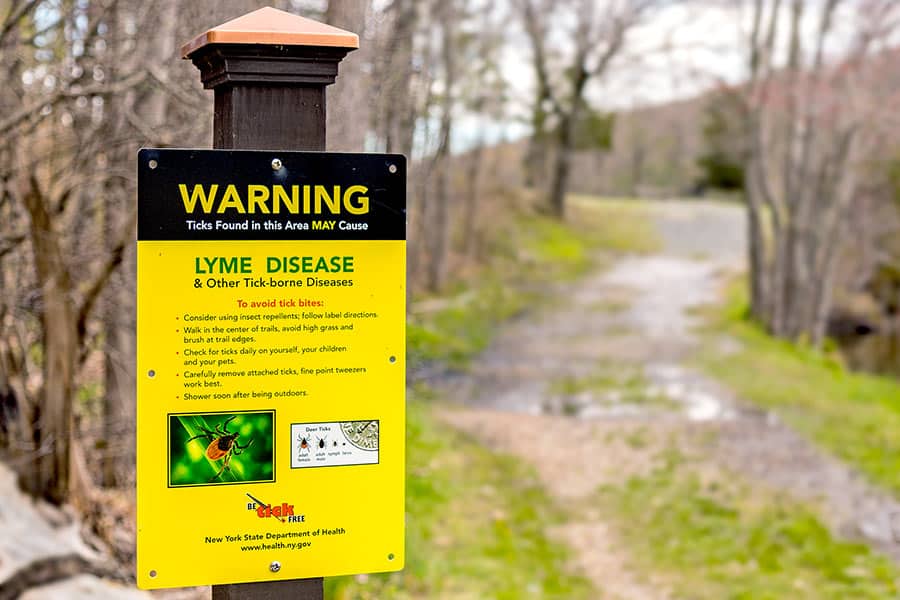
Camping is a great way to get in touch with nature, but it’s essential to be aware of its potential risks, such as tick bites. In this post, we’ll provide tips to help you avoid ticks while camping and keep yourself safe from tick-borne diseases.
First of all, what are ticks? Ticks are tiny arachnids that feed on the blood of animals. They can spread various diseases, such as Lyme disease, anaplasmosis, babesiosis, and Rocky Mountain spotted fever. Therefore, it is essential to take steps to avoid ticks while camping to reduce the risk of being bitten by one and potentially becoming infected with one of these diseases.
Ticks cannot fly or jump, but they hitchhike onto clothing and skin when people brush up against grass, foliage, and other outdoor surfaces where ticks are commonly found.
Proper precautions are essential for a safe and enjoyable outdoor experience. When camping outdoors, it’s important to be aware of ticks and how to reduce your risk of being bitten. Here are some tips to help you avoid ticks while camping.
1. Choose a campsite carefully: Look for a site away from wooded or grassy areas, as ticks commonly frequent these locations. Choose your spot with care to avoid coming into contact with these pests.

2. Places to avoid: Avoid areas with tall grass, brush, and leaf litter where ticks are more likely to be found.
3. Use insect repellent: Apply an insect repellent containing DEET, picaridin, permethrin, or lemon eucalyptus oil to your exposed skin and clothing for added protection.
4. Go Light: Wear light-colored clothing so you can easily spot ticks.
5. Wear protective clothing: Minimize the amount of exposed skin when camping by wearing long-sleeved shirts and long pants, and tuck your pants into your socks when out in the woods for protection.
6. Essential oils: Use oils like lemon eucalyptus oil as natural defenses against these tiny crawling pests since their strong scent helps repel these bugs.
7. Cover your head: Put a bandana over your head, covering your hair if you’re going into an area full of ticks or brushy vegetation, as this will give them fewer places to attach themselves to you.

8. Stay on designated trails: For safety, stick to designated trails when hiking or exploring instead of walking through tall grass, bushes, or other vegetation where ticks are commonly found.
9. Boot up: Wear high boots when walking through grassy areas as it gives something for the ticks to latch onto before getting onto skin or clothes when brushing against vegetation.
10. Tight at the ankles: Tie the bottoms of pants tight at the ankles to give another barrier so that a tick can’t crawl onto skin without being noticed.
11. Check yourself and others: Check your clothing and body regularly for any ticks that have attached themselves to you while outdoors.
Van Camping Life Fun Fact: Lyme disease is so named because it was first discovered in the town of Lyme, Connecticut, in the 1970s.
Other Posts of Interest
- Are There Grizzly Bears In Acadia National Park?
- 11 Best Camping Spots for Stargazing in the US
- Is Camping Allowed On South Padre Island?
- 18 Van Camping Tips for Beginners (The Essentials)
12. Keep your tent closed: To keep ticks out, keep your tent door and windows closed.
13. Use a groundsheet: Place a groundsheet underneath your tent to create a barrier between you and the ground.
14. Let the sunshine: If possible, hang clothes in direct sunlight after wearing them outside if they cannot go through a washing machine but must instead be hung out somewhere.
15. Keep your pets treated for ticks: To prevent ticks when camping with pets, make sure they are treated and inspected regularly.

16. Remove ticks promptly: For prompt removal of ticks, use tweezers to grasp the tick close to the skin and pull it out straight.
17. Be aware of tick-borne diseases: If bitten by a tick while camping, be mindful of the symptoms of tick-borne diseases such as Lyme disease and seek medical attention if any symptoms appear.
While no method is 100% foolproof, following these tips can help to reduce the chances of encountering ticks and their potential risks.
Can You Feel a Tick Bite?
Tick bites are usually painless and often go unnoticed. However, if you do happen to feel something strange, such as a hard bump, notice swelling, discolored skin, or have an itching sensation, it may be a sign of a tick bite.
It’s important to check yourself after spending time outdoors to ensure that no ticks have grabbed onto your clothing or skin. If you find one, it’s important to properly remove the tick and seek medical attention if necessary.
How Soon After Being Bitten by a Tick Do Symptoms Appear?
Symptoms of tick bites can start appearing anywhere from several hours to days after being bitten. Common signs and symptoms include itching, pain or irritation at the site of the bite, redness, swelling, and flu-like symptoms such as body aches, fever, and fatigue.
If you experience any of these symptoms after spending time outdoors, seek medical attention right away.
Ways to Protect Your Dog from Ticks

Tick bites can be dangerous for dogs and humans alike. Fortunately, you can take some simple steps to protect your furry friend. First, groom your pet regularly and check their fur for ticks – including in the ears, between toes, and under collars.
Also, special topical solutions and tick collars can help repel ticks. Finally, keep your dog away from areas with tall grass where ticks may hide out.
Get Ticked Off
By taking the necessary precautions, such as wearing protective clothing and boots, checking yourself regularly for ticks, avoiding tall grassy areas, and keeping your pets treated for ticks, you can significantly reduce your chances of being bitten by a tick.
If you get bitten by a tick while camping or outdoors, remove it promptly and watch out for any symptoms that may appear later on. Lastly, remember to keep an eye on your four-legged friends too!
With these tips in mind, everyone will be able to enjoy their outdoor adventures without worrying about the nuisance of tick bites.






